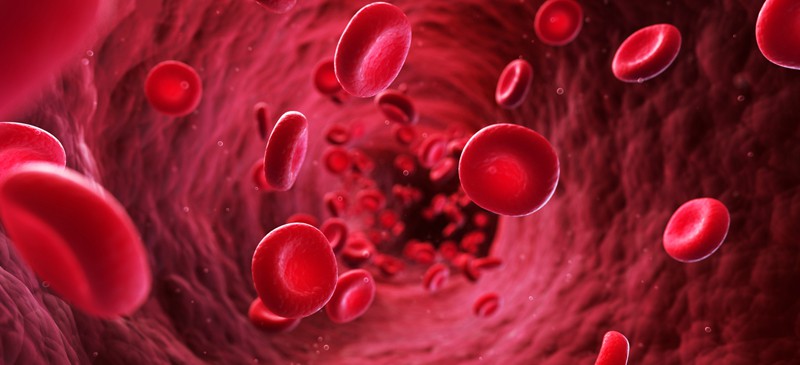This Dr. Axe content is medically reviewed or fact checked to ensure factually accurate information.
With strict editorial sourcing guidelines, we only link to academic research institutions, reputable media sites and, when research is available, medically peer-reviewed studies. Note that the numbers in parentheses (1, 2, etc.) are clickable links to these studies.
The information in our articles is NOT intended to replace a one-on-one relationship with a qualified health care professional and is not intended as medical advice.
This article is based on scientific evidence, written by experts and fact checked by our trained editorial staff. Note that the numbers in parentheses (1, 2, etc.) are clickable links to medically peer-reviewed studies.
Our team includes licensed nutritionists and dietitians, certified health education specialists, as well as certified strength and conditioning specialists, personal trainers and corrective exercise specialists. Our team aims to be not only thorough with its research, but also objective and unbiased.
The information in our articles is NOT intended to replace a one-on-one relationship with a qualified health care professional and is not intended as medical advice.
Hyperkalemia: 4 Natural Remedies for High Potassium
June 28, 2019

Hyperkalemia, or high potassium, is a serious condition associated with a number of adverse effects on health. Although it often presents with little to no symptoms, severe cases can be dangerous and even fatal if left untreated. Fortunately, having regular checkups with your doctor can help catch hyperkalemia early to treat it quickly and prevent its progression.
So what are the symptoms of hyperkalemia, and how can you treat it? Let’s dive in and take a closer look at what hyperkalemia is, what causes it and how it can impact your health.
What Is Hyperkalemia?
So what is hyperkalemia, and what does it mean for your health? Hyperkalemia is simply a medical term meaning you have high levels of potassium in your blood. This can be caused by a number of different factors, including certain health conditions or the use of some medications and herbal supplements.
Keeping potassium levels in balance is incredibly important to health. In fact, having either high or low potassium levels in the blood can be dangerous, and hypokalemia vs. hyperkalemia both present with a very similar set of symptoms. Left untreated, hyperkalemia can have some serious consequences on health, and severe cases can cause issues like chest pain, heart problems, fatigue and paralysis.
Depending on how high your potassium levels are, there are several treatment options available. Making a few modifications to your diet and daily routine or using certain medications prescribed by your doctor can help manage potassium levels and treat hyperkalemia.
Hyperkalemia Symptoms
So what happens if potassium is high? Unless the potassium levels in your blood become extremely high, you may not even experience any symptoms of hyperkalemia at all. In fact, many people are often unaware that they have high potassium levels until signs and symptoms of hyperkalemia start to develop.
Here are a few of the most common signs of hyperkalemia that you may experience:
- Fatigue
- Weakness
- Chest pain
- Irregular heartbeat
- Tingling
- Numbness
- Nausea
- Vomiting
Without proper treatment, the potential hyperkalemia effect on heart health can cause even more serious issues, including paralysis, heart failure or cardiac arrest. It can also cause hyperkalemia bradycardia, or a slowing of the heartbeat.
Hyperkalemia Causes
The most common cause of high potassium in the blood is kidney disease. This is because the kidney plays a central role in filtering the blood and excreting waste out of the body. For those with acute or chronic kidney disease, the hyperkalemia pathophysiology is often related to kidney dysfunction and an impairment in this important process. Other chronic conditions like Addison’s disease and type 1 diabetes have been linked to hyperkalemia as well.
Hyperkalemia may also be caused by dehydration, excessive potassium intake or the use of potassium supplements. Taking certain medications may also increase potassium levels, including angiotensin receptor blockers, angiotensin-converting enzyme (ACE) inhibitors and beta blockers. In some cases, trauma or severe injury can also cause potassium to leak from the cells into the bloodstream, resulting in high potassium levels.
Diagnosis
Typically, blood and urine tests are used to detect any alterations in potassium levels and help catch hyperkalemia early. Normal blood potassium should range from 3.6 to 5.2 millimoles per liter (mmol/L). If your levels reach above 6.0 mmol/L, immediate medical treatment is often required.
Note that blood tests are not always 100 percent accurate. “False hyperkalemia,” for example, can occur when blood cells rupture after blood is drawn, causing a false increase in the potassium levels of the blood sample. When false hyperkalemia is suspected, your doctor may order an additional blood test to check for accuracy.
Very high levels can also produce hyperkalemia ECG/EKG changes, which are detected by measuring the electrical activity of the heart. What are the ECG changes in hyperkalemia? Early on, hyperkalemia can cause tall, peaked T waves with a narrow base. As hyperkalemia becomes even more severe, the ECG may show an absence of the P wave with a progressive widening of the QRS, which is considered the main spike on the ECG line.
Conventional Treatment
Diuretics are often considered the first line of defense when it comes to how to treat hyperkalemia. Also known as water pills, these medications promote urination and often help your body eliminate potassium more efficiently. Resin is another medication sometimes used in hyperkalemia treatment, which binds to potassium in the bloodstream and helps shuttle it out of the body through the bowel movements. Calcium, in the form of either calcium gluconate or calcium chloride, is also used to minimize the potential impact of hyperkalemia on heart health.
For those with chronic kidney disease, dialysis is another effective option to keep potassium levels under control. Dialysis is a process that helps purify the blood by removing excess toxins and waste particles. Hemodialysis involves using a special machine called a dialyzer that functions as an artificial kidney to clean your blood. Meanwhile, peritoneal dialysis is a treatment that uses a solution called dialysate to absorb waste and fluids from the bloodstream.
4 Natural Remedies for Hyperkalemia
1. Follow a Low-Potassium Diet
Following a low-potassium diet is often the most effective treatment for hyperkalemia, especially when you have kidney problems that impair your body’s ability to filter and excrete potassium out of the body efficiently. A low-potassium diet typically involves limiting fruits and veggies like bananas, avocados and spinach. Dairy products, potatoes, dried fruit and nuts are also generally high in potassium as well.
2. Be Mindful of Herbal Supplements
In addition to keeping your potassium intake in check, it’s also important to check the ingredients labels of any herbal supplements you may be taking. Certain herbal preparations like milkweed, alfalfa, dandelion and Siberian ginseng may also contribute to high potassium levels and can worsen hyperkalemia. If you have kidney disease, in particular, it’s absolutely essential to talk to your doctor before adding any herbal supplements to your routine.
3. Avoid Salt Substitutes
If you’re trying to cut back on your sodium intake, salt substitutes may seem like a great option for boosting the flavors of your favorite foods without the added sodium. However, many of these actually contain high amounts of potassium, which can be a problem if you’re battling hyperkalemia. In fact, potassium chloride is the primary ingredient in products like NoSalt, Nu-Salt and Morton Salt Substitute.
In place of salt substitutes, start experimenting with seasonings and spices to give your dishes an added dose of flavor. Cumin, turmeric, basil, oregano and pepper are all great examples of healing herbs and spices you may want to consider adding to your diet.
4. Try Using Baking Soda
In some cases, hyperalemia could be caused by kidney problems. For those with kidney disease, the body is unable to flush out extra acid efficiently, leading to a build-up of potassium in the bloodstream. Taking an alkalizing agent such as sodium bicarbonate (baking soda) can help balance the pH and prevent acidosis. Baking soda is available in convenient tablet form, or it can be combined with a bit of water and taken as is to help decrease symptoms.
Precautions
Hyperkalemia is a serious condition that can cause several adverse effects on health if left untreated. What can hyperkalemia lead to? In severe cases, sustaining high levels of potassium in the blood long-term can cause heart failure, cardiac arrest and even paralysis.
Getting regular checkups and routine bloodwork done can help monitor for any changes in potassium levels and catch hyperkalemia early. If you suspect you may have high potassium, contact a trusted healthcare practitioner immediately to get your blood levels tested. Your doctor can make recommendations on whether making a few minor modifications to your diet can help correct potassium levels or whether more aggressive treatments may be needed.
Keep in mind that if you have chronic kidney disease, following a renal diet is absolutely essential to regulating electrolyte levels in the blood. In addition to limiting potassium intake, this also typically involves restricting fluids along with sodium and phosphorus. Depending on the severity of your condition, it may also involve decreasing or increasing your intake of protein as well. Consult with your doctor or dietitian to come up with a personalized plan that works for you.
Final Thoughts
- Hyperkalemia is a term used to describe high potassium levels in the blood. The official hyperkalemia definition includes potassium levels above normal, which ranges from 3.6 to 5.2 mmol/L.
- Mild cases often don’t present with any symptoms. As hyperkalemia progresses, however, it can cause side effects like fatigue, weakness, chest pain and heart problems.
- Hyperkalemia is usually diagnosed using blood or urine tests, and conventional treatment can include the use of certain medications, diuretics or dialysis for those with kidney disease.
- In more mild cases, your doctor may also advise you to use baking soda, follow a low-potassium diet, stop taking certain herbal supplements and avoid potassium-based salt substitutes to keep potassium levels under control.
- Getting your bloodwork checked regularly can help catch hyperkalemia early to prevent serious side effects. Be sure to talk to your doctor if you suspect you may have hyperkalemia to test the amount of potassium in your blood and determine the best course of treatment for you.









